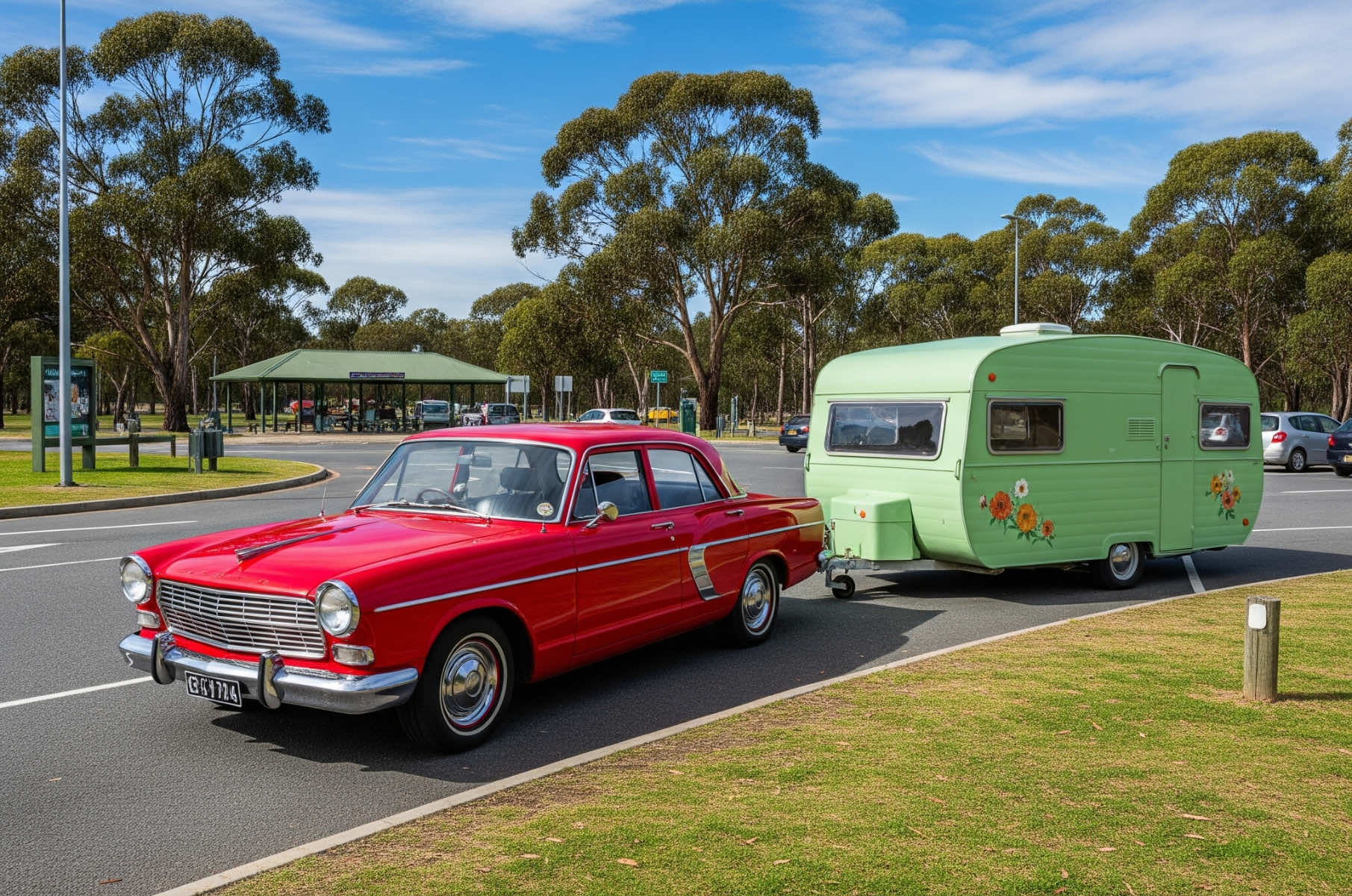Understanding Camping Regulations at Victorian Rest Areas
Victoria, with its diverse landscapes ranging from coastal drives to rugged bushland, beckons travellers to explore its natural beauty. For those embracing the freedom of a road trip or the allure of "van life," the question often arises: can you camp overnight at rest areas? The answer, while seemingly straightforward, is nuanced and hinges on a combination of state laws and local council regulations.
The Purpose of Rest Areas
Firstly, it's crucial to understand the primary purpose of rest areas in Victoria. They are designed to combat driver fatigue, a significant contributor to road accidents. VicRoads, the state's road authority, provides a network of rest areas to encourage drivers to take regular breaks, stretch their legs, and, most importantly, sleep if they feel drowsy. Many rest areas offer basic amenities like toilets, picnic tables, and rubbish bins, with some larger ones providing more extensive facilities.
State-Level and Local Council Nuances
On a state level, Victoria does not have a blanket ban on sleeping in your car. This means that generally, if you're feeling fatigued, pulling over at a rest area and sleeping in your vehicle to avoid driving while tired is permissible and, in fact, encouraged for safety reasons.
However, the critical caveat lies in the local council bylaws. Many Victorian municipalities have introduced regulations that specifically prohibit overnight parking or "camping" in certain areas, including some rest areas, public car parks, and foreshore areas. These bylaws aim to manage issues like litter, sanitation, noise, and the long-term occupation of public spaces.
Therefore, while the state promotes using rest areas for fatigue management, a local council might deem extended stays as "camping" and enforce restrictions. This is why checking signage at each individual rest area is paramount. Signs indicating "No Camping," "No Overnight Stays," or time limits on parking are common and must be adhered to. Ignoring these signs can result in fines.
Distinguishing Between Resting and Camping
The distinction between "resting" to combat fatigue and "camping" for an extended stay can sometimes be a grey area. Generally, a short stop to sleep for a few hours to safely continue your journey is considered resting. However, setting up an elaborate campsite with awnings, cooking facilities outside your vehicle, and staying for multiple nights will likely be interpreted as camping and may fall foul of local regulations if not in a designated camping ground.
Where to Legally Camp in Victoria
For those planning to truly camp, Victoria offers numerous legal and well-equipped options:
- State Forests: Victoria's state forests often provide excellent free camping opportunities. You can typically camp anywhere in a state forest, provided you are at least 20 metres from waterways and stay no longer than 28 consecutive nights. Always check for specific rules, especially regarding campfires and vehicle use, which can vary and are subject to fire restrictions. The "More to Explore" website or app is a valuable resource for finding these sites.
- National and State Parks: Parks Victoria manages a vast network of national and state parks, many of which have designated campgrounds. These often require bookings, especially during peak seasons, and some may have fees. However, as of late 2024 to mid-2025, a government initiative offers free camping at 131 Parks Victoria bookable campgrounds, though booking is still essential. These campgrounds offer varying facilities, from basic bush sites to those with toilets and showers. Dispersed or bush camping is also permitted in many parks, but generally requires self-sufficiency and awareness of the specific park's rules.
- Licensed Crown River Frontages: Recent legislative changes in Victoria allow for more camping opportunities on designated Crown land along rivers. These specific areas are assessed for suitability and come with clear rules, including no camping within 20 metres of waterways or 200 metres of any nearby house, and a maximum stay of 14 nights. Firewood collection is often prohibited, so you'll need to bring your own.
- Commercial Campgrounds and Caravan Parks: For those seeking more amenities and guaranteed legality, commercial campgrounds and caravan parks are always a safe bet. They offer a range of facilities and a secure environment for overnight stays.
Key Considerations for Responsible Roadside Resting and Camping
Regardless of where you choose to rest or camp, responsible practices are essential:
- Check Signage: Always, always read and obey any signs at rest areas. They will clearly state any time limits or prohibitions on overnight stays.
- Leave No Trace: Carry out all your rubbish. Rest areas typically do not have rubbish collection services beyond small bins, and littering carries penalties.
- Respect Others: Be mindful of noise levels, especially if you're staying overnight. Many people use rest areas for peace and quiet.
- Fire Safety: If campfires are permitted in designated camping areas, adhere strictly to fire restrictions and ensure your fire is completely extinguished before leaving. Never collect firewood from the surrounding environment unless explicitly allowed.
- Waste Disposal: Use provided toilet facilities. If none are available in a bush setting, dig a hole at least 30cm deep and bury human waste and toilet paper at least 100 metres from waterways. Portable toilets are also an excellent option.
- Waterways: Do not wash dishes or dispose of wastewater in or near waterways. Use a bucket and dispose of water at least 50 metres away, using environmentally friendly soaps where possible.
In conclusion, while sleeping in your vehicle at a Victorian rest area to manage fatigue is generally acceptable, it is not a free pass for extended camping. Always prioritise safety, check local council bylaws and signage, and choose designated camping areas for a legal and enjoyable overnight stay. Planning ahead and knowing the rules will ensure a smooth and responsible adventure through Victoria's beautiful landscapes.
